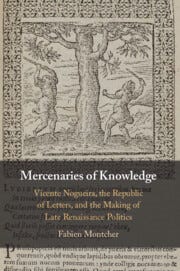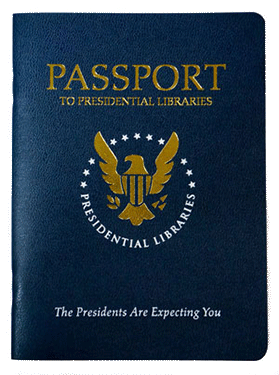“Bibliopolitics” refers to the political dimensions of books, libraries, and knowledge systems.
Mercenaries of Knowledge
Mercenaries of Knowledge by Fabien Montcher, frames bibliopolitics as practices in early modern Europe where books, libraries, and scholarly exchanges were used to navigate political conflicts. Exiled scholars leveraged book trading and knowledge networks to foster diplomatic relations and survival strategies, showing how "bibliopolitics" secured political communication during wars or imperial rivalries.1
Read about the “Wars of Knowledge,” articles analyzing “Iberian imperial hegemony and the assembly of libraries” at Scholars of Fortune.2
Donald J. Trump Presidential Library
The Wall Street Journal on June 5, 2025 wrote about the future of Donald J. Trump’s presidential library: “Trump Wants His Presidential Library Set in Florida, Enticed by Free Land.”3
Of the locations considered, Florida Atlantic University in Boca Raton, Fla., emerged as the preferred site because of its proximity to Mar-a-Lago, a private Trump club. A person familiar with the negotiations said that Trump’s team is nearing a deal with FAU—which has offered a 100-year lease at no cost—and that Trump expressed interest in the university during a meeting with lawyers at Mar-a-Lago earlier this year.
Presidential Libraries
The Presidential Library system is composed of sixteen Presidential Libraries across 14 facilities nationwide.4 These facilities are overseen by the Office of Presidential Libraries, in the National Archives and Records Administration. 5 The Presidential Libraries maintain over 600 million pages of textual materials; nearly 20 million photographs; over 20 million feet of motion picture film; nearly 100,000 hours of disc, audiotape, and videotape recordings; over 500 TB of electronic data, and close to 750,000 museum objects.
You can get a passport: The Passport to Presidential Libraries
Presidential Libraries as Bibliopolitics
Presidential libraries exemplify bibliopolitics by serving as curated repositories of political power, memory, and legacy, where the selection, presentation, and preservation of documents shape historical narratives. Funded by a mix of private donations and taxpayer money, Presidential libraries reflect the priorities and agendas of former presidents and their supporters, as seen in exhibits that may downplay controversies or emphasize achievements.
Critics, like those in the National Taxpayers Union’s 2025 report, argue that their high costs—over $100 million annually for the system—prioritize legacy-building over public interest.6 The shift to digital formats, as with Obama’s library, raises questions about access and control in the digital age.
Presidential libraries are not neutral archives but active sites of political storytelling and influence.
There are criticisms.7
Presidential libraries are perfect examples of just how far presidents will go to control their own legacies. Since the first one was created in 1941, what were intended to be serious research centers have grown into flashy, partisan temples touting huckster history. Built with undisclosed, unlimited donations, often to sitting presidents, libraries have traditionally been donated to the government after their construction. But even though they are taxpayer-funded and controlled by a federal agency, the private foundations established by former presidents to build the libraries retain outsize influence.8
Texas has the Most Presidential Libraries
Montcher, Fabien. 2023. Mercenaries of Knowledge : Vicente Nogueira, the Republic of Letters, and the Making of Late Renaissance Politics. Cambridge, United Kingdom: Cambridge University Press.
McCook, Kathleen. (2021). Scholars of Fortune. Ebla to E-Books: The Preservation and Annihilation of Memory.
Trump Wants His Presidential Library Set in Florida, Enticed by Free Land. Wall Street Journal, June 5, 2025.
Nappo, Christian A. 2018. Presidential Libraries and Museums. Lanham, Maryland: Rowman & Littlefield.
National Taxpayers Union Foundation. The Price of Preservation: How the Presidential Library System Impacts Taxpayers. February 20, 2025.
Ewen, Lara. 2021. “TARNISHED LEGACIES: Presidential Libraries Grapple with the Histories of Their Subjects.” American Libraries 52 (1): 28–31;
Kanter, Jodi. 2016. Presidential Libraries as Performance : Curating American Character from Herbert Hoover to George W. Bush. Carbondale: Southern Illinois University Press;
Hufbauer, Benjamin. Presidential Temples : How Memorials and Libraries Shape Public Memory. Lawrence, Kan: University Press of Kansas, 2005.
Anthony Clark, a former Congressional staffer, is the author of a book on the politics and history of presidential libraries, The Last Campaign: How Presidents Rewrite History, Run for Posterity & Enshrine Their Legacies. Quote from Clark in Slate







Might be the first Presidential Library with only ghost written books, if there are any books. Most likely, highlights of golf tournaments and professional wrestling commentary on playback monitors will be the main features.
This is all new to me. Thank you!